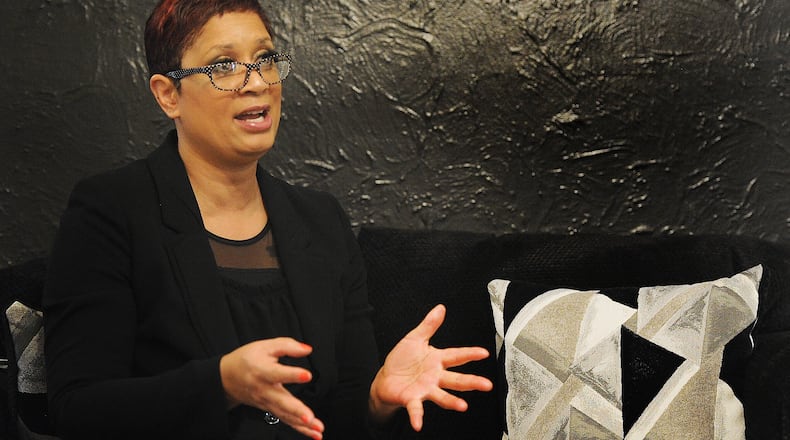A quitclaim deed is a document often used by relatives to transfer ownership of a property. No money is involved in the transfer, and no title search is completed to verify ownership of the property.
In fraudulent cases, a false signature of the owner paired with a negligent or complicit notarization is recorded against the property.
Montgomery County officials have pointed to a rise in this kind of fraud, and a Dayton Daily News investigation found that victims of fraud were seeing mixed results in their local court system.
Montgomery County Common Pleas Judge Elizabeth Ellis last week ruled that the quitclaim deed used to transfer the property from Mobley to Rush Plaza Corp., owned by Demetrius Rush, was “invalid” and “unenforceable.”
Thomas Manning, representing Rush’s estate, said he has “tremendous respect” for Ellis, but he intends to appeal the decision.
Mobley found out her Hackett Drive property transferred ownership when she received a summons in the mail last year naming her as a defendant in a mortgage foreclosure case.
Montgomery County property records show that the house was in her possession in 2010 but transferred to Rush Plaza Corp. in 2012 through a quitclaim deed.
Court records show that Rush signed a delinquent tax contract to make payments on taxes for the residence. Mobley said she and Rush were negotiating a deal on the property, but terms of their agreement were never fulfilled.
Rush died in 2017. The property has accumulated more than $13,000 in delinquent taxes, according to Montgomery County Auditor’s Office records.
The notary whose signature is on the document, Gregory Moss, testified in court this year that he did not recall signing the document and did not notarize deeds that weren’t related to second mortgages at the time the document was processed.
Credit: Jim Noelker
Credit: Jim Noelker
Moss also testified that someone else’s handwriting was in an area of the deed that was solely for the signing notary, which would require him to redraft the deed.
Ellis in her entry said this testimony called “into question the legitimacy of the whole deed.”
She ordered that the Montgomery County Auditor’s Office and county Recorder’s Office “engage in all necessary and legal actions” to reinstate the deed that shows Mobley’s ownership of the house.
Mobley said she was excited with the judge’s ruling and is planning other steps needed to reacquire the property.
The Trotwood woman, who represented herself in court, has advocated resources for victims of quitclaim deed fraud and accountability for officials who handle property transfers.
She said regaining her property has been costly and coming at a time where she was battling and recovering from cancer.
“More needs to be done for people going through this,” she said.
About the Author


